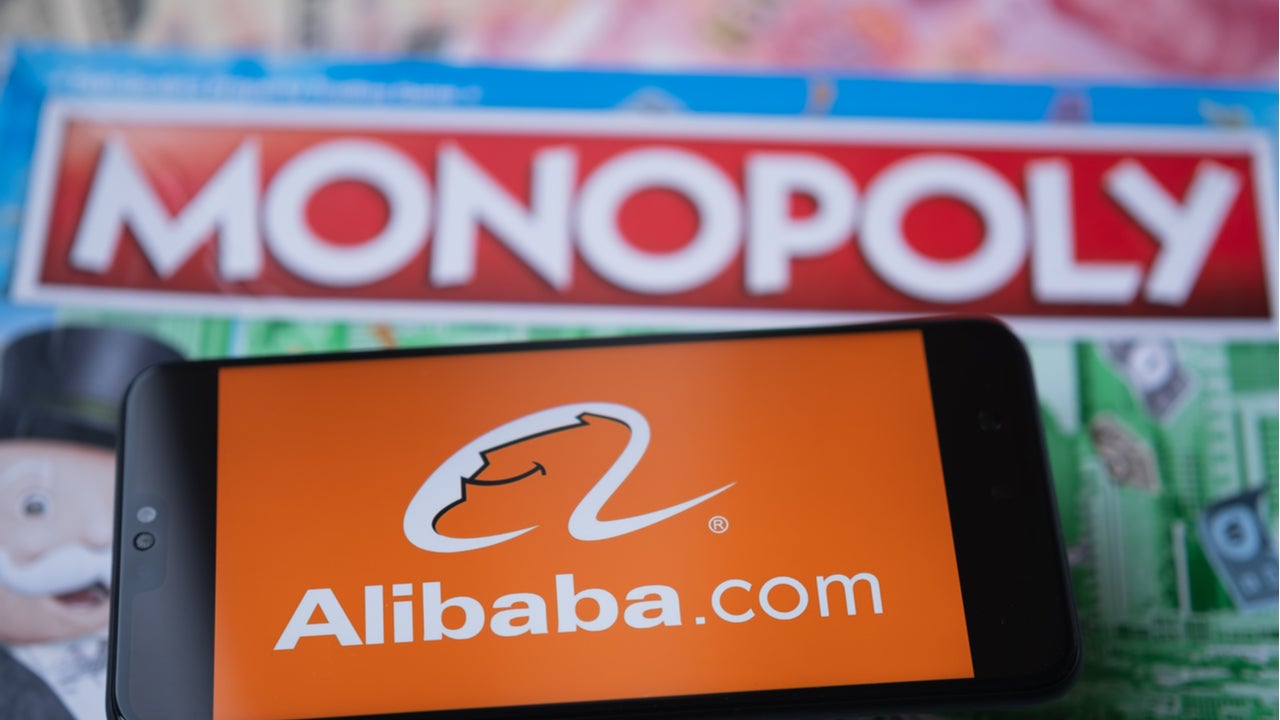
The Chinese community group-buying app Nice Tuan, backed by the ecommerce giant Alibaba, was handed a 1.5m yuan ($235,000) fine by China’s market regulator for failing to take action over product dumping practices and pricing fraud.
The State Administration for Market Regulation (SAMR) also ordered the platform to suspend its business operations in the Jiangsu province for three days starting Friday for “failing to rectify” monopolistic behaviour.
The organisation released a statement on Thursday saying that this was the first time the SAMR issued a fine higher than the basic penalty, “demonstrating the determination of the market supervision department to fight the chaos.”
A spokesperson for the organisation added that “in late April, we received clues that Nice Tuan did not fully implement the rectification commitments and there are still large numbers of low-price dumping and price fraud incidents in its Jiangsu area.”
Community group-buying platforms offer groceries at a lower price for people who join together to buy in bulk directly from the farmer. The model has become increasingly popular in China, especially in lower-tier cities. However, competition is intense among platforms that are often accused of manipulating prices unfairly.
In the case of Nice Tuan, the SAMR alleged that the platform artificially drove down prices. For example, it cited how the app offered a type of pear at 0.99 yuan per 250 grams, despite its cost being 3.89 yuan.
How well do you really know your competitors?
Access the most comprehensive Company Profiles on the market, powered by GlobalData. Save hours of research. Gain competitive edge.

Thank you!
Your download email will arrive shortly
Not ready to buy yet? Download a free sample
We are confident about the unique quality of our Company Profiles. However, we want you to make the most beneficial decision for your business, so we offer a free sample that you can download by submitting the below form
By GlobalDataSuch behaviour “undermines the legitimate rights and interests of small and medium-sized enterprises” and other grocers, it said.
China’s growing group-buying economy
Group-buying platforms have boomed in China over the past few years, especially during the Covid-19 pandemic. The model usually has a designated community leader who coordinates grocery orders for a community. The food items are purchased in bulk to ensure lower costs for individuals. The order is then delivered to a designated area, and the community leader redistributes it among the group members.
The ability to buy in bulk, ensuring lower costs for consumers, has become especially popular in China’s lower-tier cities. The simplicity of ordering from a community leader has also made group buying platforms more accessible for the elderly, who often lack the tech-savviness to navigate China’s everchanging ecommerce environment.
The pandemic has stimulated the expansion of the community group-buying model, as people started purchasing groceries online more frequently.
Chinese ecommerce behemoths Alibaba, JD.com and Pinduoduo all jumped on the community buying bandwagon.
Beijing’s ongoing battle with big tech
The Nice Tuan fine comes two months after various other group-buying platforms, including Meituan, Pinduoduo and Tencent-backed Shixianghui, were fined by the SAMR for “improper pricing behaviour.”
This falls within a broader endeavour by the Chinese government to rein in big tech. Earlier this month, Alibaba was slapped with a $2.8bn antitrust fine for having abused its market position by holding its rivals back “through exclusive arrangements without justifiable cause.”
The tech behemoth’s battle with Beijing is an ongoing saga that seemingly started last year after CEO Jack Ma made a series of bold statements that appeared to criticise the Xi Jinping government. A month later, Chinese regulators torpedoed Ant Group’s hotly-anticipated $37bn public listing.
Other Chinese tech titans, including Tencent Holdings, Baidu, ByteDance and Didi Chuxing, were also fined by Chinese regulators earlier this year.
Amid this heated climate, Alibaba is still expanding its business in China. At the company’s Cloud Summit on Friday, the president of Alibaba’s Cloud Intelligence unit, Zhang Jianfeng, announced the company’s aim to “build China’s largest and best digital service.”







